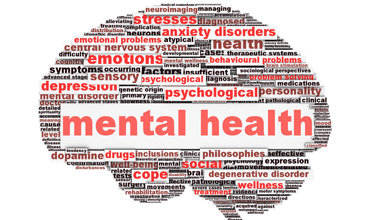Employment Status and Mental Illness in Federal Psychiatric Hospital, Calabar

Abstract:
The purpose of this study was to examine employment
status and mental illness among psychiatric patience of Federal Psychiatric Hospital
Calabar, Nigeria. The ex-post facto research design was used for the study. The
population of this study comprised all the in-patients in the hospital. The sample
of this study comprised of 50 patients who were randomly picked from acute wards
of the hospital. Four research questions and hypotheses were formulated to guide
the study. Instrument titled “employment status and mental illness questionnaire”
was used for the study. The validity of the instrument
was established using face validation method. The data obtained were analysed using
Chi- square test. Each of the hypotheses was tested at 0.05 level of significance.
The result of the analysis revealed that the rate of mental illness, recovery
and relapse differ significantly between the employed and the unemployed. The result
further revealed that societal regards for the employed and the unemployed
do significantly differ. Based on this findings, it was concluded that employment
status do influence mental illness in Federal Psychiatric Hospital Calabar, Nigeria.
It was recommended that Government should create more job opportunities for the
unemployed so as to get them occupied, which in turn will help in taking away the
time they would have engaged in anti social activities.
Key Words Employment: A state of functionality
of an employee under agreement with his employer.
References:
[1.] A. J. Lee, I. K. Crombie,
W. C. S. Smith, and H. D. Tunstall-Pedoe, “Cigarette smoking and employment status,”
Social Science and Medicine, vol. 33, no. 11, pp. 1309–1312, 1991. View at Publisher
View at Google Scholar View at Scopus
[2.] Cantor-Graae, E., &
Selten, J. P. (2005). Schizophrenia and migration: A meta-analysis and review. American Journal of Psychiatry, 162, 12-
24.
[3.] C. E. Ross and J. Mirowsky,
“Does employment affect health?” Journal of Health and Social Behavior, vol. 36,
no. 3, pp. 230–243, 1995. View at Google Scholar
[4.] D. Dooley, R. Catalano,
and R. Hough, “Unemployment and alcohol disorder in 1910 and 1990: drift versus
social causation,” Journal of Occupational and Organizational Psychology, vol. 65,
pp. 277–290, 1992. View at Google Scholar
[5.] Erickson, H.C., Tomlin,
E.M., & Swain, M.A. Modeling and role-modeling: A theory and paradigm for
nursing. Prentice Hall, 1983.
[6.] F. M. McKee-Ryan, Z. Song,
C. R. Wanberg, and A. J. Kinicki, “Psychological and physical well-being during
unemployment: a meta-analytic study,” Journal of Applied Psychology, vol. 90, no.
1, pp. 53–76, 2005. View at Publisher View at Google Scholar View at PubMed View
at Scopus http://www.theatlantic.com/business/archive/2014/06/the-mental-health-consequences-of-unemployment/372449/ 9 Jun 2014 The Mental-Health Consequences of Unemployment. Those who have been looking
for work for half a year or more are more than three times.
[7.] J. A. Dean and K. Wilson,
“Education? It is irrelevant to my job now. It makes me very depressed”: exploring
the health impacts of under/unemployment among highly skilled recent immigrants
in Canada,” Ethnicity and Health, vol. 14, no. 2, pp. 185–204, 2009. View at Publisher
View at Google Scholar View at PubMed View at Scopus
[8.] J. P. Grayson, “Health,
physical activity level, and employment status in Canada,” International Journal
of Health Services, vol. 23, no. 4, pp. 743–761, 1993. View at Google Scholar View
at Scopus
[9.] K. I. Paul, E. Geithner,
and K. Moser, “Latent deprivation among people who are employed, unemployed, or
out of the labor force,” Journal of Psychology, vol. 143, no. 5, pp. 477–491, 2009.
View at Publisher · View at Google Scholar View at PubMed View at Scopus
[10.] L. Cai and G. Kalb, “Health
status and labour force participation: evidence from Australia,” Health Economics,
vol. 15, no. 3, pp. 241–261, 2006. View at Publisher View at Google Scholar View
at PubMed
[11.] M. Marmot and R. Wilkinson,
Social Determinants of Health, Oxford University Press, London, UK, 2nd edition,
2006.
[12.] Sappington J, Kelley JH.
Modeling and role-modeling theory: a case study of holistic care. J Holist Nurs.
1996 Jun;14(2):130-41.
[13.] Shuo Zhang & Vishal
Bhavsar: unemployment as a risk for mental illness: combinding social and psychiatric
literature. Email: shuo.s.zhang@kcl.ac.uk, vishal.2.bhavsar@kcl.ac.uk (2013).
[14.] S. H. Wilson and G. M.
Walker, “Unemployment and health: a review,” Public Health, vol. 107, no. 3, pp.
153–162, 1993. View at Google Scholar · View at Scopus
[15.] Tandon, R., Keshavan, B.
S., & Nasrallah, H. A. (2008). Schizophrenia. “Just the Facts” What we know
in 2008. 2. Epidemiology and etiol-ogy. Schizophrenia
Research, 102, 1-18. doi:10.1016/j.schres.2008.04.011

